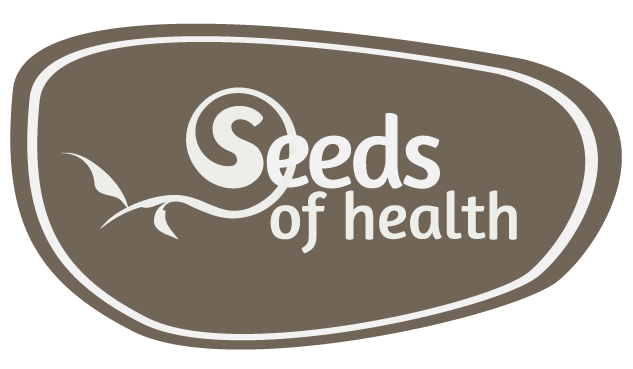Recently I did a workshop at Amanda Gale Physiotheraphy for mums and their bubs. I wanted to provide awareness about how the foods we eat and what we put on our skin are absorbed into our bodies and then filtered through to the mother’s milk, if breast feeding. I focused mainly on food, however I also touched on beauty products. Do you read the labels? Consider using coconut oil as your daily moisturiser…it’s fantastic!
Everything you eat and put on your skin (ie. moisturizer) is absorbed by your body and therefore your baby, whether in the the womb or being breast fed.
ALTERNATIVE FOODS TO ENJOY
Common allergen foods are wheat, dairy and sugar. Here are some alternatives to consider using:
WHEAT
The following grains contain wheat: Triticale, spelt, kamut, durum wheat, semolina, bulgur and then of course wheat. Barley, rye and oats contain gluten which may cause problems for some people’s digestion, however if gluten is not an issue for you there are great alternatives. There are so many other choices to use though! Consider using these grains, seeds and flours:
Rice, corn, millet, quinoa, amaranth, buckwheat, potato, nut flours like almond meal, tapioca, flaxseed/linseed and chia.
DAIRY
Cow’s milk can create many digestive problems and increase mucous production in our body. There are many alternatives including: almond milk, rice milk, oat milk, soy milk (BONSOY preferably – available from some supermarkets and most health food shops). Goats milk, although still dairy, can be less of a problem.
Other sources of calcium that offer a variety of vitamins and minerals and strengthen our bones include almonds, tahini (sesame seed paste), broccoli, figs, green leafy vegetables like kale, watercress, romaine lettuce, pak choi, chicory, seaweed, alfalfa and hazelnuts.
Sometimes we need to restructure our diet plan so dairy is not our main focus for breakfast, for example. I love creating food plans for people so please come and see me if you need help with this.
SUGAR
White sugar should be avoided by everyone! I have written an earlier post about sugar, so scroll down if you would like to revisit this. Sugar depletes both you and your babies immune system which is not a great start to life!
Other alternatives include maple syrup, honey, agave, stevia, xylitol (the last three are available from health food stores). These are all more whole food and plant source sweeteners that also contain vitamins and minerals
Other things to consider:
Remember that your baby eats what you eat – through your breast milk – it is therefore so important to be conscious of everything you are putting in your mouth!
• Avoid adding salt, sugar and seasonings to foods as this becomes a benchmark flavour for your baby. Let them taste each food as nature intended it first.
• Unprocessed whole foods are fantastic snacks – mashed pumpkin, sweet potato, paw paw, avocado, banana, home made yogurt or unflavoured organic yogurt, etc. Make a larger amount and freeze some in ice cube trays.
• Dehydrated fruits can be used along with rusks to chew on.
• Consider adding salmon to your baby’s diet (check for bones!). Healthy omegas are present. Linseeds and chia seeds are also great sources of omega 3 and 6. This helps develop your child’s brain and also skin health to name a few.
ALWAYS check for additives and preservatives in foods! If you make them fresh you don’t need to worry about this. These can really affect your child’s immune system as it is not from nature and therefore provokes an immune response within their body, unnecessarily.
Colic
Some foods that can aggravate digestion and cause colic symptoms include:
· Cruciferous vegetables such as broccoli, cauliflower, cabbage, etc.
· Cow’s milk and soy milk
· Chocolate
· Onions
· Spices can also upset your baby’s digestion so consider whether you are adding too much chilli for example to your foods.
If you have eliminated the following foods for a minimum of 2 weeks and symptoms have not subsided consider getting a Hair Mineral Analysis Test at Amanda Gale Physiotherapy to discover specific foods and products that your baby needs to eliminate.
Almond milk is so easy to make. Consider making it yourself. Here’s the recipe:
Almond milk
1 x nut milk bag
1 cup measure
Blender
Raw natural almonds
Soak 1 cup of almonds overnight in fresh water. Drain the almonds and place in the blender with 1 litre of water*. Blend for around 1.5mins, or until blended through depending on how fantastic your blender is. Drain this through your nut milk bag, and squeeze all of the milk into a jug or glass bottle for storage. You many like to reduce the amount of water blended with your almonds to create a thicker milk.
*Optional add ins include: 1 date, 1 vanilla bean, a pinch sea salt, coconut.
Use as a delicious dairy replacement with muesli, or in hot drinks and smoothies.
All the best with your food alternatives choices! Have fun and explore your options.
Please feel free to contact me with any questions.
Janelle Twine.

